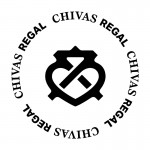How to keep back vintage wine?

When you want to store aged wine correctly, here are some important storage guidelines to ensure the quality and flavor of the wine are preserved:
- Control temperature: Stable temperature is crucial for maintaining the quality of aged wine. Aged wine should be stored at a lower temperature, typically between 12°C and 18°C (54°F to 64°F). High temperatures can accelerate the aging process, causing the wine to mature too quickly, while low temperatures can result in a stale wine. It is also important to ensure temperature stability and avoid drastic fluctuations.
- Avoid direct sunlight: Aged wine should be kept away from sunlight and other strong light sources as light can damage the wine, causing undesirable chemical reactions that can affect the flavor and color. It is best to choose a dark area or use opaque storage containers.
- Control humidity: The storage environment for aged wine should have moderate humidity, typically between 50% and 80%. This helps prevent the corks in the wine from drying out and shrinking or warping, thus protecting the wine from further exposure to oxygen.
- Prevent agitation and vibration: Agitation and vibration can disrupt the stability and maturation process of aged wine. Therefore, you should avoid frequent moving or shaking of the stored bottles to ensure the wine remains relatively undisturbed.
- Proper storage position: Aged wine should be stored horizontally, which helps maintain contact between the wine and the cork, preventing the cork from drying out. If you are using plastic or screw-cap closures, the storage position is less critical.
- Suitable storage container: Aged wine should be stored in appropriate containers, such as glass wine bottles. Choose high-quality, flawless, and thick-walled bottles to ensure the wine is well-protected.
- Storage duration: Not all wines are suitable for long-term aging. Understand the wine's aging potential and the recommended aging time to enjoy it at the right moment.
Please note that these are general storage guidelines, and each wine may have its individual storage requirements. Certain special aged wines may require more stringent storage conditions, such as refrigeration or specific humidity control. If you have valuable aged wines or any doubts about their storage, it is advisable to consult a professional wine collector or winemaker.



































